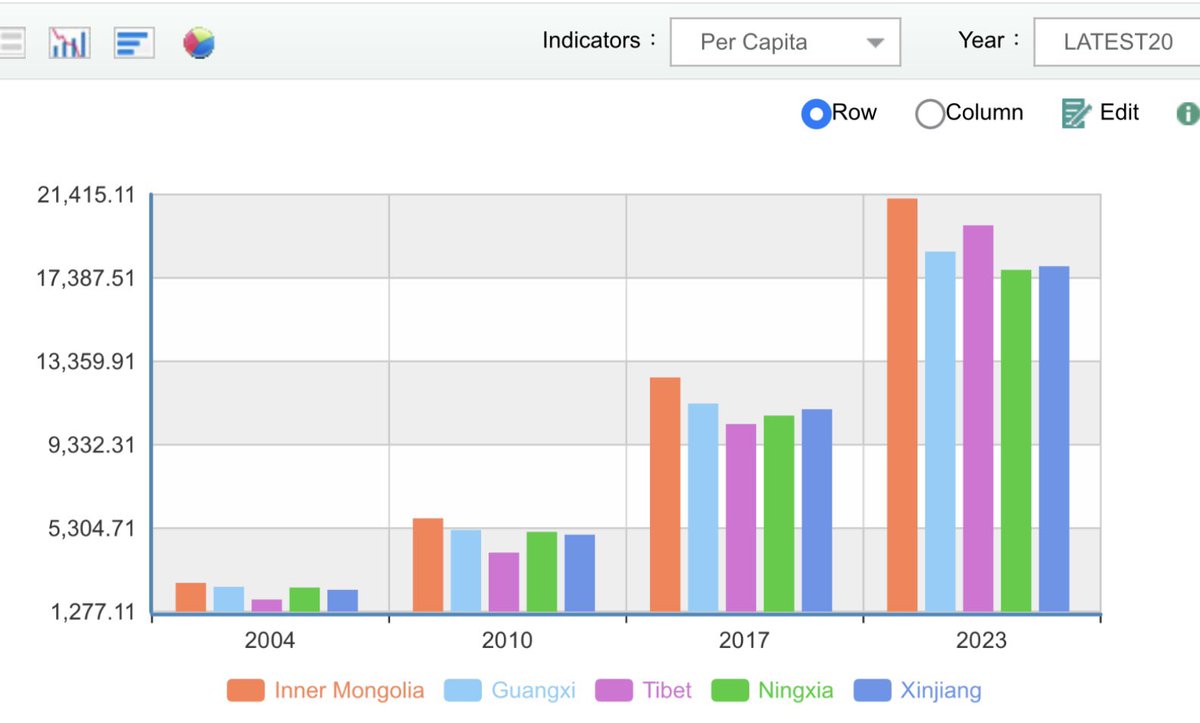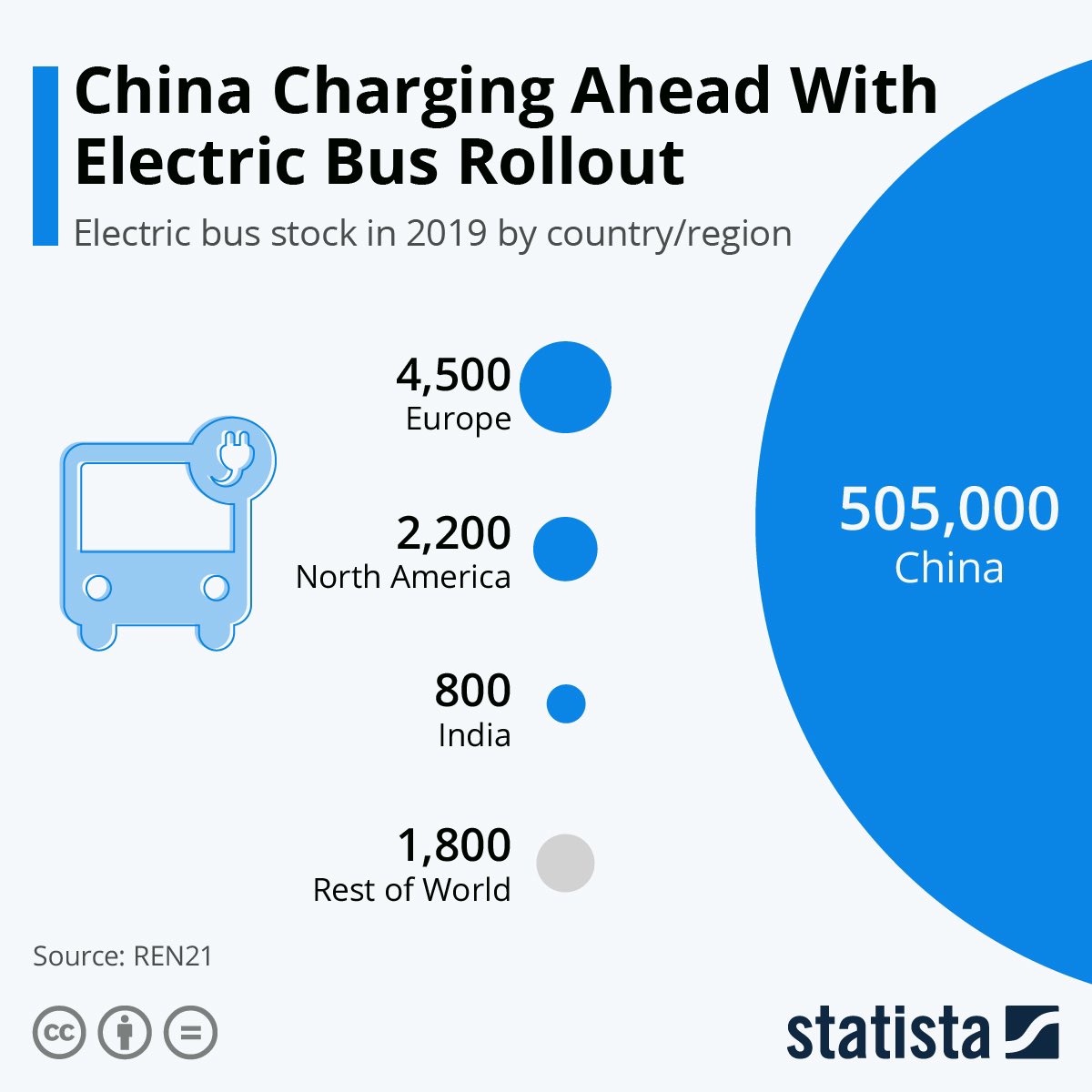In 1916, Lenin called imperialism the highest stage of capitalism.
In 1965, Kwame Nkrumah said that neocolonialism is the last stage of imperialism.
Both are obsolete. Since 1990, we’ve been in a new, even higher stage.
A 🧵 on debt, finance, the US, the Arab Spring and China.
In 1965, Kwame Nkrumah said that neocolonialism is the last stage of imperialism.
Both are obsolete. Since 1990, we’ve been in a new, even higher stage.
A 🧵 on debt, finance, the US, the Arab Spring and China.
Lenin and Nkrumah were correct in their time. But imperialism keeps changing, so theory must change too. Clinging to old models despite new data is the essence of dogmatism.
Nkrumah in fact predicted a new stage would result from the socialist bloc's collapse. Then it collapsed.
Nkrumah in fact predicted a new stage would result from the socialist bloc's collapse. Then it collapsed.

This thread will contain many tweets. I'll begin with some numbers showing the quantitative changes in how imperialism has been maintained and enforced since 1990.
First, financial coercion by the IMF, honed during the 80s, tripled in the decade after 1990. From 1984-1989 the IMF loaned an average of $4 billion a year; in an equal period after (1990-1995) it averaged $8.2 billion a year. In 2020 it was $37 billion.
imf.org/external/np/fi…
imf.org/external/np/fi…
The amounts are relatively small, but these loans come at a high price, and are often targeted at countries in crisis that are least able to refuse. Before a member country can even be considered for a loan, the IMF requires that its economy undergo "structural adjustment"
These adjustments typically involve social spending minimums, the elimination of price controls, the devaluing of local currency, and refocusing industry on resource extraction and direct exports. Essentially, they are a weapon of class warfare against the peasants and workers.
I've already written a little about how the IMF deployed this weapon against Sudan in the 80s. Similar schemes were targeted at Rwanda, Côte d’Ivoire, Mexico, Bolivia, and many others all over the world.
https://twitter.com/KyleTrainEmoji/status/1611901955227684864
Second, as an unchallenged superpower, the US became twice as warlike as before. The US has conducted 400 total military interventions in its history—50% in the past 70 years and 25% in the past 30 years. The rate of new interventions doubled after 1990.
journals.sagepub.com/doi/full/10.11…

journals.sagepub.com/doi/full/10.11…


The US had always been relatively hesitant to wield its military directly, usually relying on the CIA and proxies such as the Nicaraguan Contras. But only a month after the Berlin Wall was broken, the US military openly invaded Panama.
The US military transformed from a deterrent against the spread of socialism to a global occupying force. In 1989 it had bases in 40 countries; by 2021 it was 80 countries. In 2008 a new strategic command for operations in Africa (AFRICOM) was created.
dra.american.edu/islandora/obje…
dra.american.edu/islandora/obje…
Third, the National Endowment for Democracy, the US govt's go-to soft-power tool for coopting revolution and sabotaging resistance to its system of exploitation, expanded by an order of magnitude. In 1989, it spent just $21 million; by 2008, it was spending $135 million per year.
The NED's roster of "experts" have included former US government officials you may recognize, like Henry Kissinger, Zbigniew Brzenzinski, Elliott Abrams and Madeleine Albright.
A co-founder of the NED told the Washington Post that "a lot of what we do today was done covertly 25 years ago by the CIA."
washingtonpost.com/archive/opinio…
washingtonpost.com/archive/opinio…
The actual purpose of the NED and its sister organizations is to bring "democracy" to the enemies of the US empire. According to the NED's website, it is funded by an annual appropriation from Congress, and is answerable to it and to the Executive Branch. 

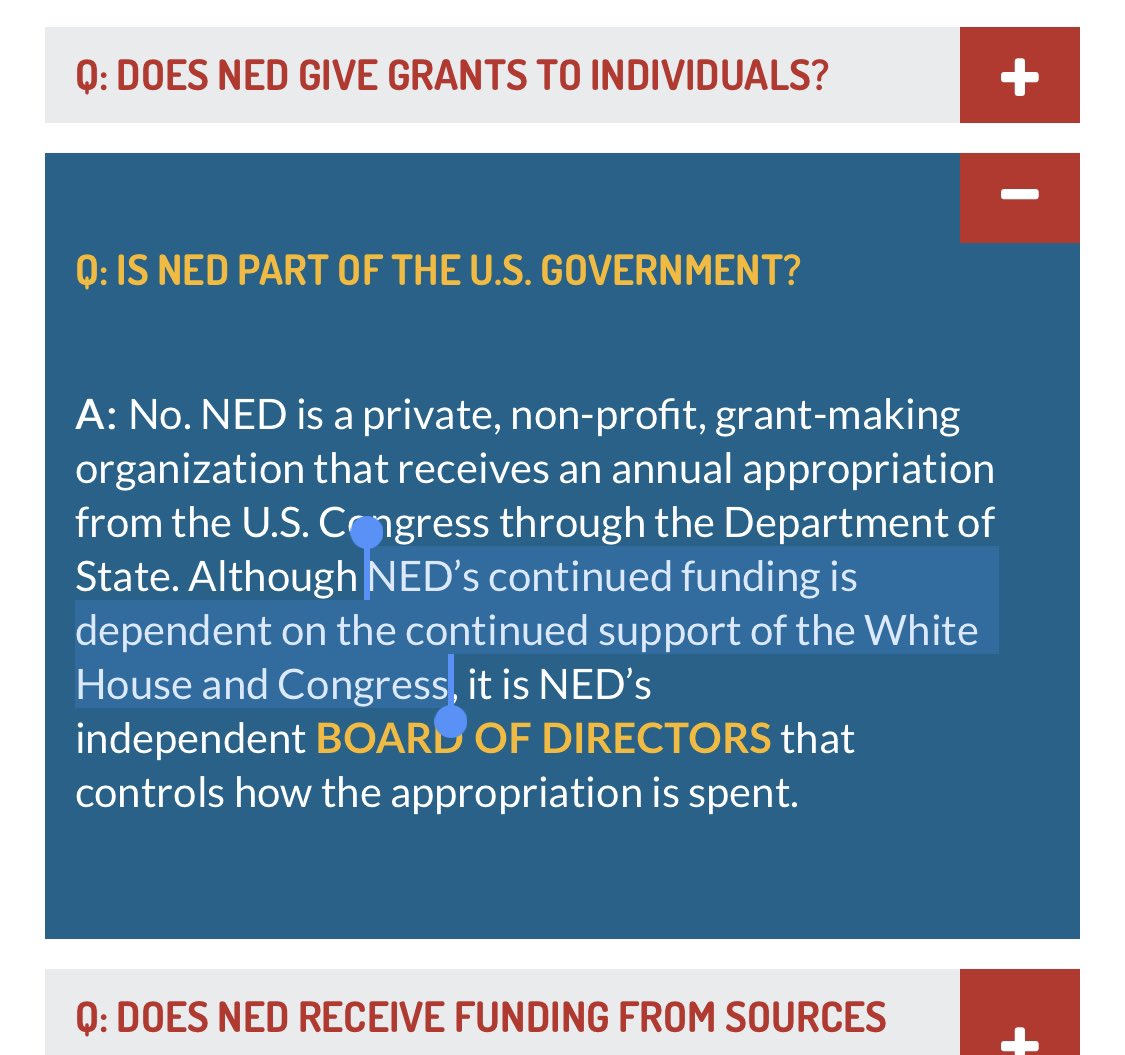

So it's probably no surprise a data regression analysis of all NED activity from 1990-1999 found that NED aid "neither produces democracy nor follows democratization" and that there was a NEGATIVE relationship between NED grants and democracy scores.
tandfonline.com/doi/abs/10.108…
tandfonline.com/doi/abs/10.108…
These quantitative changes show that qualitatively, after 1990, the United States and its closest allies (the UK, France, Germany, Japan) gained a complete monopoly on political influence throughout almost the entire world.
This has never before been the case in any stage of imperialism. Empires had always had competitors, whether it was another empire (such as how the European powers warred with one another in Lenin's time), or a competing economic order like the Soviet Union's. No longer.
Resistance to imperialism thus became vastly more difficult. The Arab Spring of 2011 is a good example. Its major flash points—Egypt, Tunisia, Morocco, and Jordan—were praised in 1999 for "successfully" implementing structural adjustment programs.
merip.org/1999/03/how-tu…
merip.org/1999/03/how-tu…
In reality, this meant misery for the Arab worker. The Egyptian textile industry, for example, was privatized and its workforce halved. Wages stagnated as the cost of living increased. Things got worse throughout the 2000s, until many couldn’t afford food.
theguardian.com/commentisfree/…
theguardian.com/commentisfree/…
Even Libya was duped into "reforming" to attract foreign investment. In 2007, one-third of all public employees were laid off; being the last bastion of Arab Socialism, the govt gave a generous severance of 3 years' full salary. It expired in 2010...months before the Arab Spring.
On the eve of the revolutions, academics warned the US government that rising global food prices were correlated with social unrest and political instability. Action was not taken.
web.archive.org/web/2013091700…
web.archive.org/web/2013091700…

At the same time, the NED sank its hooks into the region. The NYTimes later reported that "key leaders of the movements" had been paid by NED-funded NGOs. Western finance created the conditions for an uprising, and western soft-power stepped in to guide it
nytimes.com/2011/04/15/wor…
nytimes.com/2011/04/15/wor…
Overall, workers were left even worse off than before, in some places (Libya, Syria, Yemen) MUCH worse. The US and its allies—especially France—took the opportunity to militarily intervene and destroy the Libyan state, which had been an impediment to exploitation in the region.
The US govt didn't necessarily know the Arab Spring would happen. But it didn't need to predict when or where revolution would occur; it just had to be ready. NED is active EVERYWHERE in the world—EXCEPT North America and western Europe.
Democracy is already fine there, I guess.
Democracy is already fine there, I guess.
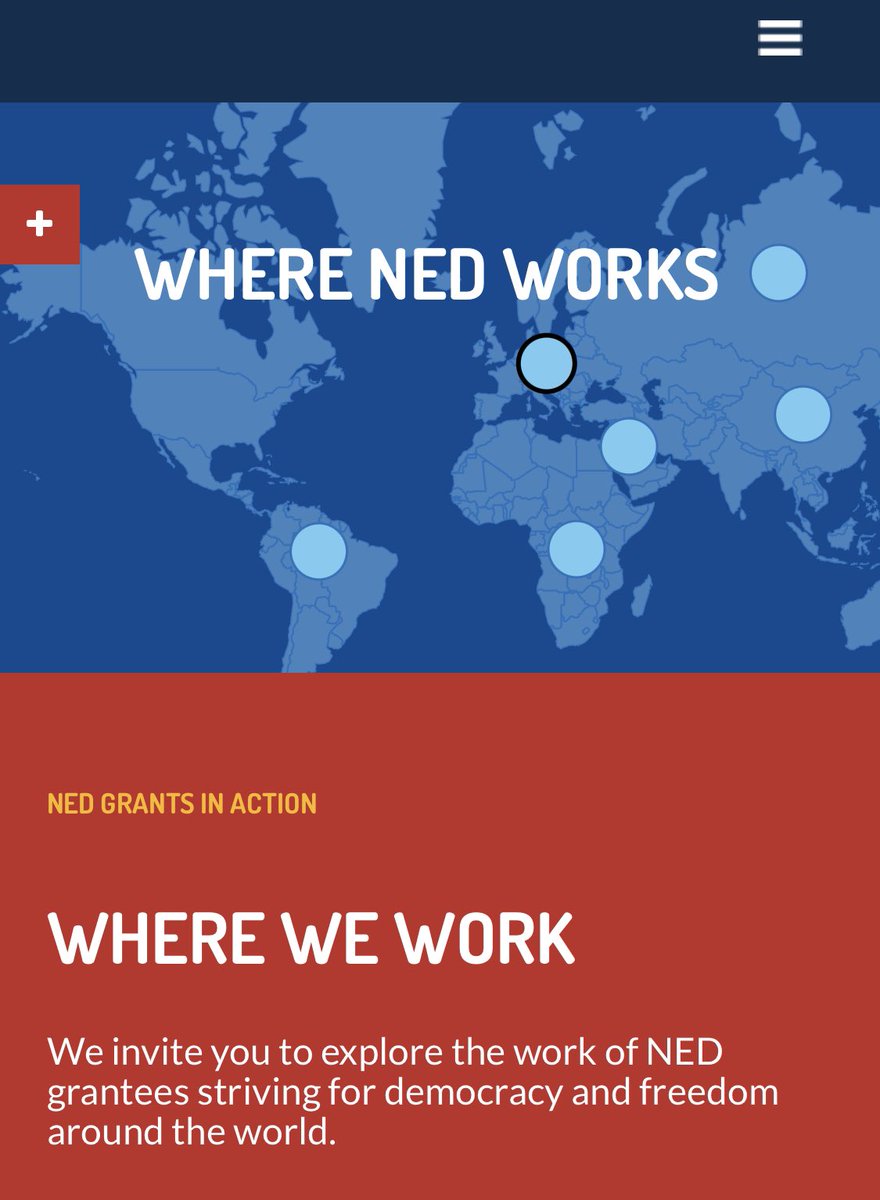
This is how the new stage of imperialism is maintained. But who benefits from it, and how?
Lenin's 1916 definition of imperialism is still mostly relevant, in that he identifies the motor force of exploitation in the perpetually profit-hungry financiers of monopoly capitalism.
Lenin's 1916 definition of imperialism is still mostly relevant, in that he identifies the motor force of exploitation in the perpetually profit-hungry financiers of monopoly capitalism.
It has two main deficiencies today, however. One is obvious—the world isn't divided into colonies anymore. Only settler-colonies (e.g. US, Canada) and a few direct colonies (e.g. Puerto Rico) remain. The exploited countries are now neocolonies.
marxists.org/archive/lenin/…
marxists.org/archive/lenin/…

Nkrumah described further how neocolonialism operates in his book. There is a huge difference between colonialism and neocolonialism, which has serious implications for HOW the finance capitalist class profits from its empire.
Before, imperialists could siphon money toward the core via colonial state taxation. This was a major mechanism of exploitation of India by the UK; economist Dr. Utsa Patnaik estimated the total amount extracted to be approximately $45 trillion.
aljazeera.com/opinions/2018/…
aljazeera.com/opinions/2018/…
But a neocolony is at least nominally independent and cannot be plundered so directly. The transfer of wealth from the global periphery to the core of empire now takes on different forms.
One of them is the servicing of external debt. Countries the World Bank classifies as "Low & middle income" pay over $1 trillion a year to service external debts.
Global debt has also vastly increased since 1990. For some, debt service is almost entirely to pay interest.
Global debt has also vastly increased since 1990. For some, debt service is almost entirely to pay interest.
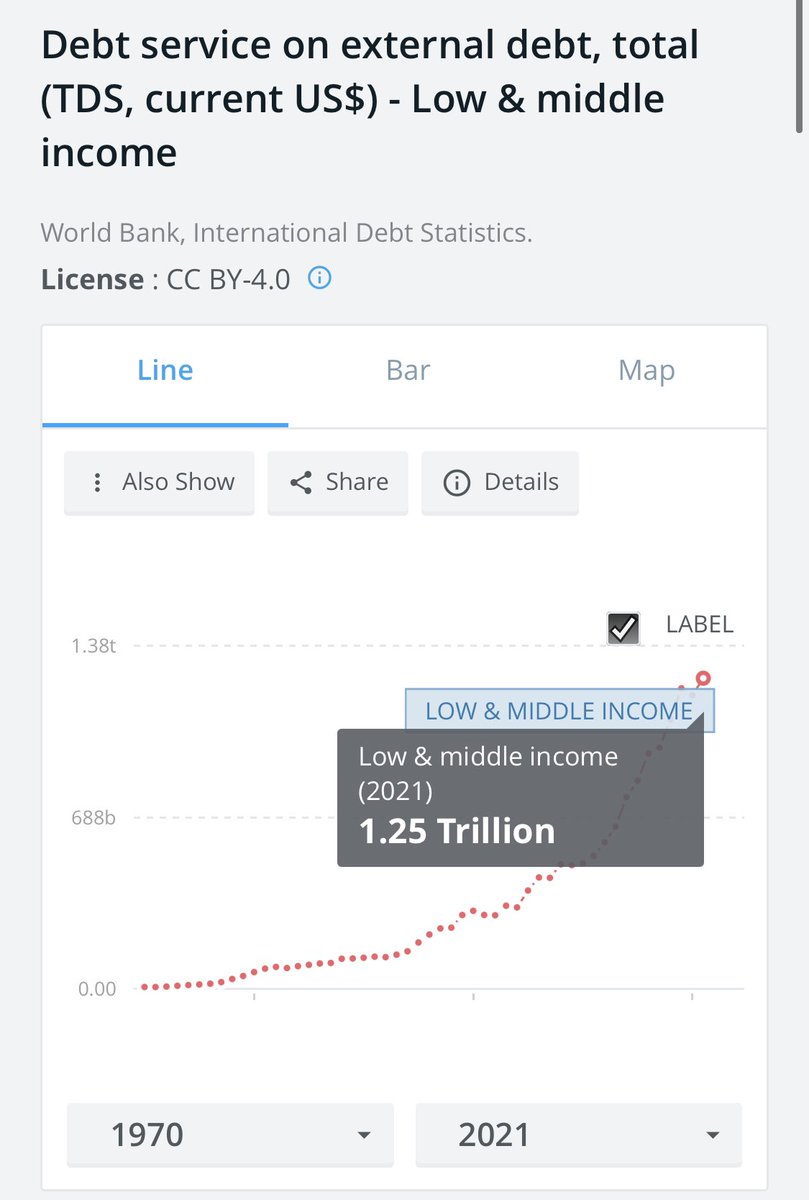
But this isn't the primary reason why western banks lend.
$1 trillion is a lot, but $10.8 trillion is a hell of a lot. That's the total drained from the IMF's "non-advanced" to "advanced" countries (US, Europe, Japan, &c.) via trade in 2015, per research by Jason Hickel, et al.
$1 trillion is a lot, but $10.8 trillion is a hell of a lot. That's the total drained from the IMF's "non-advanced" to "advanced" countries (US, Europe, Japan, &c.) via trade in 2015, per research by Jason Hickel, et al.
https://twitter.com/jasonhickel/status/1611660581626601473
This transfer is known as unequal exchange, and is now the primary imperialist mechanism of exploitation. It arises in a large part from a discrepancy between the high price of commodities in the core and the low cost of labor to produce them throughout the global supply chain.
We now come to the second deficiency of Lenin's definition, which is the importance he gives the export of capital. This criterion is lacking in much less obvious way.
marxists.org/archive/lenin/…
marxists.org/archive/lenin/…

It would seem the export of capital is still a key factor in imperialist exploitation. Loans are a form of capital export; and Marxian economist Arghiri Emmanuel, who first developed the theory of unequal exchange, considered the mobility of capital to be an all-important factor. 
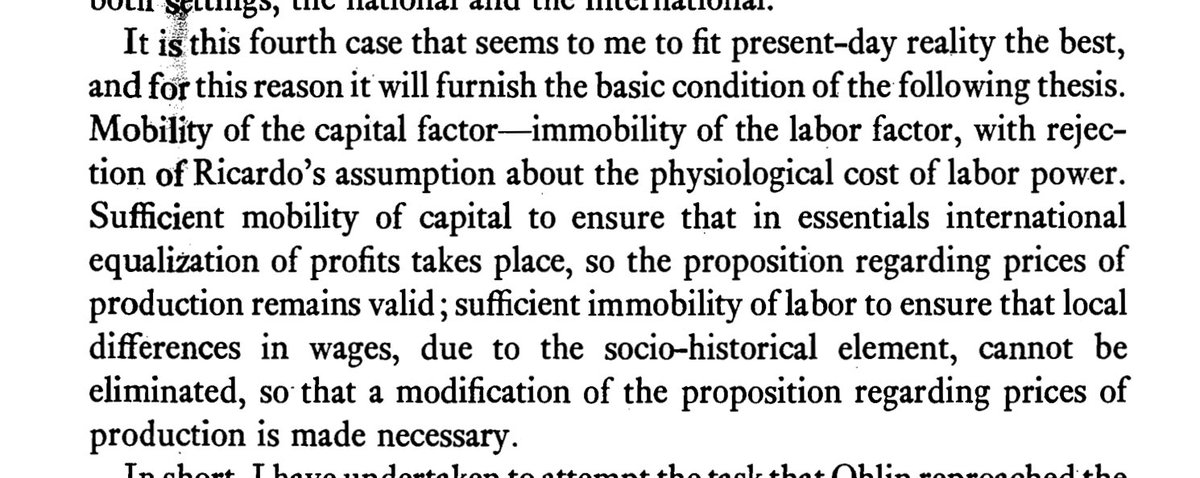
So there's nothing new under the sun—yet MOST capital exports today do NOT play a role in either.
MOST exported capital, in fact, is now exported from one western country...to another western country.
MOST exported capital, in fact, is now exported from one western country...to another western country.
UN statistics show that in 2021, 80% of the world's entire foreign direct investment stock was invested by "developed economies"—and an equal amount was also invested IN "developed economies"
unctad.org/system/files/o…
unctad.org/system/files/o…

Since prices, incomes, &c. in western countries are mostly equivalent, they cannot (with some exceptions) be victims of each other's unequal exchange.
Also, even during colonialism, most capital exports DEVELOPED a country, not keep it underdeveloped.
Per research by economic historian @JayTharappel, 80% of the British Empire's capital exports were to settler-colonies (US, Australia, &c.), not India.
scienceopen.com/hosted-documen…
Per research by economic historian @JayTharappel, 80% of the British Empire's capital exports were to settler-colonies (US, Australia, &c.), not India.
scienceopen.com/hosted-documen…
As a result, settler-colonial destinations of British capital advanced into the core, while India and other colonies languished in poverty.
Lenin's definition isn't incorrect—it's just incomplete. Not all capital exports are created equal; some have positive economic effects while others have negative ones.
The export of capital is therefore a NECESSARY condition of imperialism, but not a SUFFICIENT one.
The export of capital is therefore a NECESSARY condition of imperialism, but not a SUFFICIENT one.
We can get a sense of this difference in type by comparing western and Chinese investments in African countries.
$500 billion of the Belt and Road's $838 billion total investment stock was construction-related, while just 0.1% of US investments were in construction.

$500 billion of the Belt and Road's $838 billion total investment stock was construction-related, while just 0.1% of US investments were in construction.
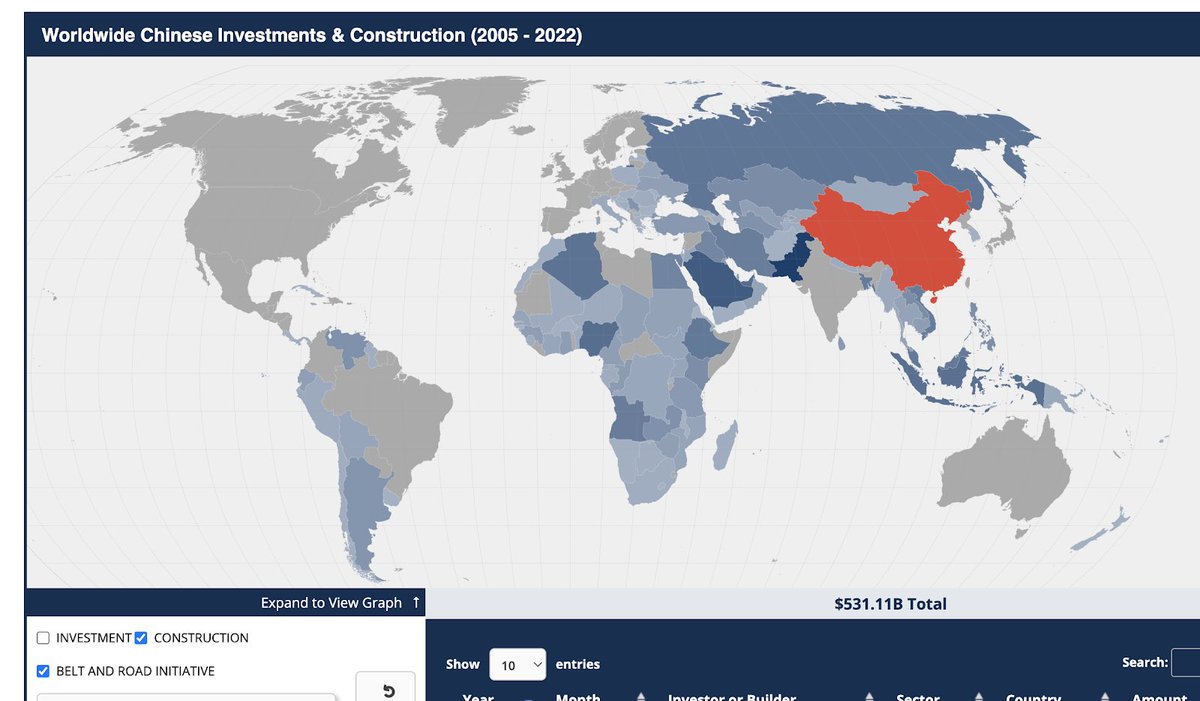

The US exports five times as much capital as China, but US foreign direct investment is mostly in the "finance and insurance" category. The G7 member with the largest share of FDI stock in construction was Italy with 9%.
data.oecd.org/fdi/outward-fd…
data.oecd.org/fdi/outward-fd…

According to the founder of urban planning research center MORE Architecture, "any big project in African cities that is higher than three floors or roads that are longer than three kilometers are most likely being built and engineered by the Chinese."
forbes.com/sites/wadeshep…
forbes.com/sites/wadeshep…

The west is notorious for promising big initiatives to "counter" the Belt and Road over the years. So far, none of them have amounted to much of anything. 

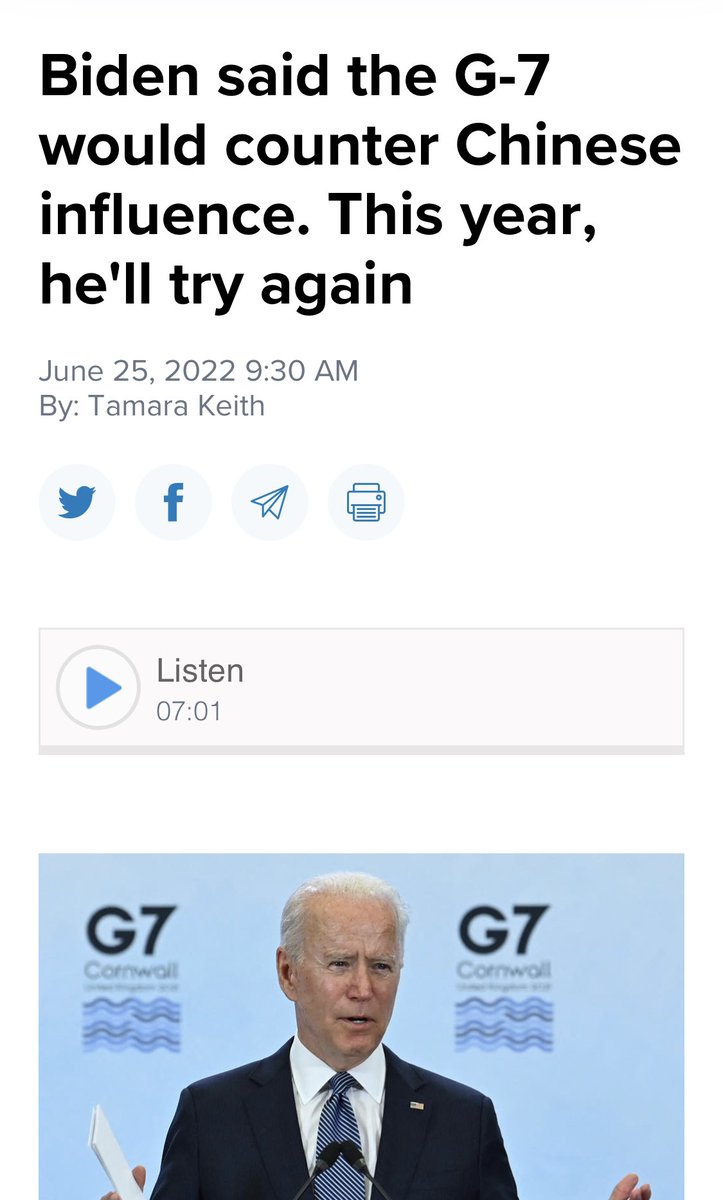

A study by McKinsey in 2020 found that US investors had a greater potential "appetite" for infrastructure investment in Africa than any other country...yet only 10% of projects were actually funded.
mckinsey.com/capabilities/o…
mckinsey.com/capabilities/o…
To get rich, first build a road. Western financiers had plenty of time and capital to fund African infrastructure, but largely chose not to—not only because the real money is in extracting rents, but because the more infrastructure you build, the harder it is to extract rents.
The western press has excoriated the Belt and Road Initiative from many angles. One criticism is that some projects "fail" in that Chinese investors don't get a return on investment for the stuff they built.
That happens to be true. Funding infrastructure in Africa is risky and not very profitable.
China does it anyway.
China does it anyway.
In fact, the average return on Chinese foreign investments is quite low, less than half the global average.
Interest rates on Chinese loans to Africa are also half what is charged by western lenders, according to British NGO Debt Justice.



Interest rates on Chinese loans to Africa are also half what is charged by western lenders, according to British NGO Debt Justice.




This is screwing up the whole system. Western economists complain that China secretly gave billions in emergency loans to struggling countries in 2022, which "postpone[d] the day of reckoning" they thought poor countries deserved to face at the IMF's hands
fortune.com/2022/09/12/chi…
fortune.com/2022/09/12/chi…
Worse still, if you don't pay back a Chinese loan, nothing bad happens.
According to a comprehensive analysis by China-Africa expert Professor Deborah Brautigam, et al., Chinese lenders have never once seized assets or "structurally adjusted" anyone.
static1.squarespace.com/static/5652847…
According to a comprehensive analysis by China-Africa expert Professor Deborah Brautigam, et al., Chinese lenders have never once seized assets or "structurally adjusted" anyone.
static1.squarespace.com/static/5652847…

Chinese loans aren't for free. PRC advocates mention that China has forgiven many debts, which is not entirely accurate. It has, but those are a minority of its loans.
Instead, when push comes to shove, the debt stays on the ledger, but Chinese lenders simply won't collect.

Instead, when push comes to shove, the debt stays on the ledger, but Chinese lenders simply won't collect.


The worst thing that may happen if you're in arrears, in fact, is that Chinese creditors won't give you MORE loans.
If you don't pay back the IMF and the World Bank, they will take it from you in blood. Even the IMF's debt *forgiveness* brings pain.
If you don't pay back the IMF and the World Bank, they will take it from you in blood. Even the IMF's debt *forgiveness* brings pain.
https://twitter.com/KyleTrainEmoji/status/1611905395223842817
A debt isn't a debt if you don't pay it back. The discipline of Chinese international lenders in refraining from profiteering, in fact, is pretty remarkable. There's a good reason for it—just like the west, profiting from loans isn't their primary goal.
China and the west have completely opposite ulterior motives in finance. The western empire uses debt as leverage to impoverish its victims so it can continue to make the real money through unequal exchange. China is there to make sure roads get built, even if at a loss.
This benefits China in less tangible ways: its construction industry and its manufactured goods are ensured new markets, and it earns goodwill. It also undermines the west's exploitation, and maybe eventually, its hegemony.
How is this acheived? Aren't Chinese lenders capitalists, profit-hungry by nature?
Well, no, actually. A 2015 study published by Australian National University Press in found that 89% of China’s overseas direct investment came from state-owned enterprises
jstor.org/stable/j.ctt16…
Well, no, actually. A 2015 study published by Australian National University Press in found that 89% of China’s overseas direct investment came from state-owned enterprises
jstor.org/stable/j.ctt16…
The loans are issued by China Eximbank, which in 2007 became the world's largest export credit agency. It operates as a tool of the government, and is not expected to satisfy shareholders or turn a profit. 

In fact, China entirely lacks a financial oligarchy, another of Lenin's criteria for imperialism. It has many capitalists, and billionaires, but not financial billionaires.
https://twitter.com/KyleTrainEmoji/status/1581472733032218630
In China, the state owns the banks, the Party owns the state, and the workers and peasants own the Party. Unlike financial capitalists, they are not required by their class interest to super-exploit workers in other countries.
Some modern Marxists err by considering the PRC an empire just because it exports capital. It's clear this isn't the case. Lenin's theory of imperialism must be updated and clarified based on new observations, just like many other scientific theories have been throughout history.
This isn't a criticism of Lenin's reasoning. He couldn't know how things would change in the 20th century. If he were alive now, he surely wouldn't have identical takes on entirely new phenomena. He would make new observations and write more theory to explain them. So should we.
A few corrections and clarifications.
As @ZeusGrobbelaar informed me (thank you!) the Libyan government probably didn’t follow through with its plan to lay off thousands of public employees in 2007, reported here by Reuters:
nytimes.com/2007/01/22/wor…
As @ZeusGrobbelaar informed me (thank you!) the Libyan government probably didn’t follow through with its plan to lay off thousands of public employees in 2007, reported here by Reuters:
nytimes.com/2007/01/22/wor…
The Libyan government at the time was trying to attract foreign investment and was promising a lot of privatization schemes, like this one in 2010, but the actual reforms likely proceeded more slowly.
reuters.com/article/ozatp-…
reuters.com/article/ozatp-…
In the end, I think Gaddafi and the Libyan ruling class made a tragic mistake of thinking they could reconcile with the west on their own terms and survive. Despite their overtures, the empire found it preferable to annihilate them instead.
Second, note the original source for calculating the distribution of the British Empire’s capital exports.
I do strongly advise you check out the paper @JayTharappel cites it in, it’s quite informative.
I do strongly advise you check out the paper @JayTharappel cites it in, it’s quite informative.
https://twitter.com/jaytharappel/status/1612932776415879170
Also, I neglected to credit a few of the screencaps regarding Chinese debt relief and China Eximbank. They are from The Dragon’s Gift by Deborah Brautigam, which I highly recommend you read to further understand Chinese finance and other aspects of the PRC’s relations with Africa 
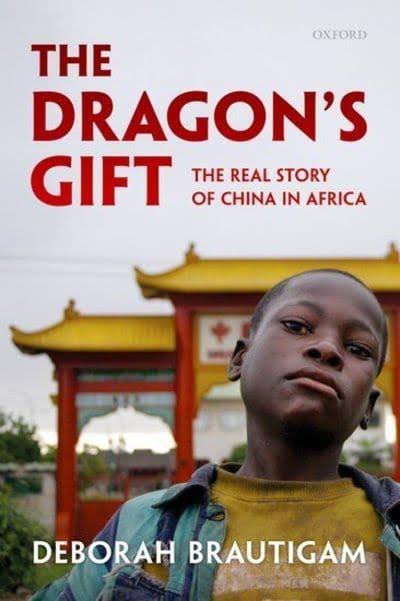
For further reading, check out this related thread, which explains more about the reasons behind the transition to neocolonialism, and how imperialism has changed:
https://twitter.com/KyleTrainEmoji/status/1613582558457106432
• • •
Missing some Tweet in this thread? You can try to
force a refresh
















